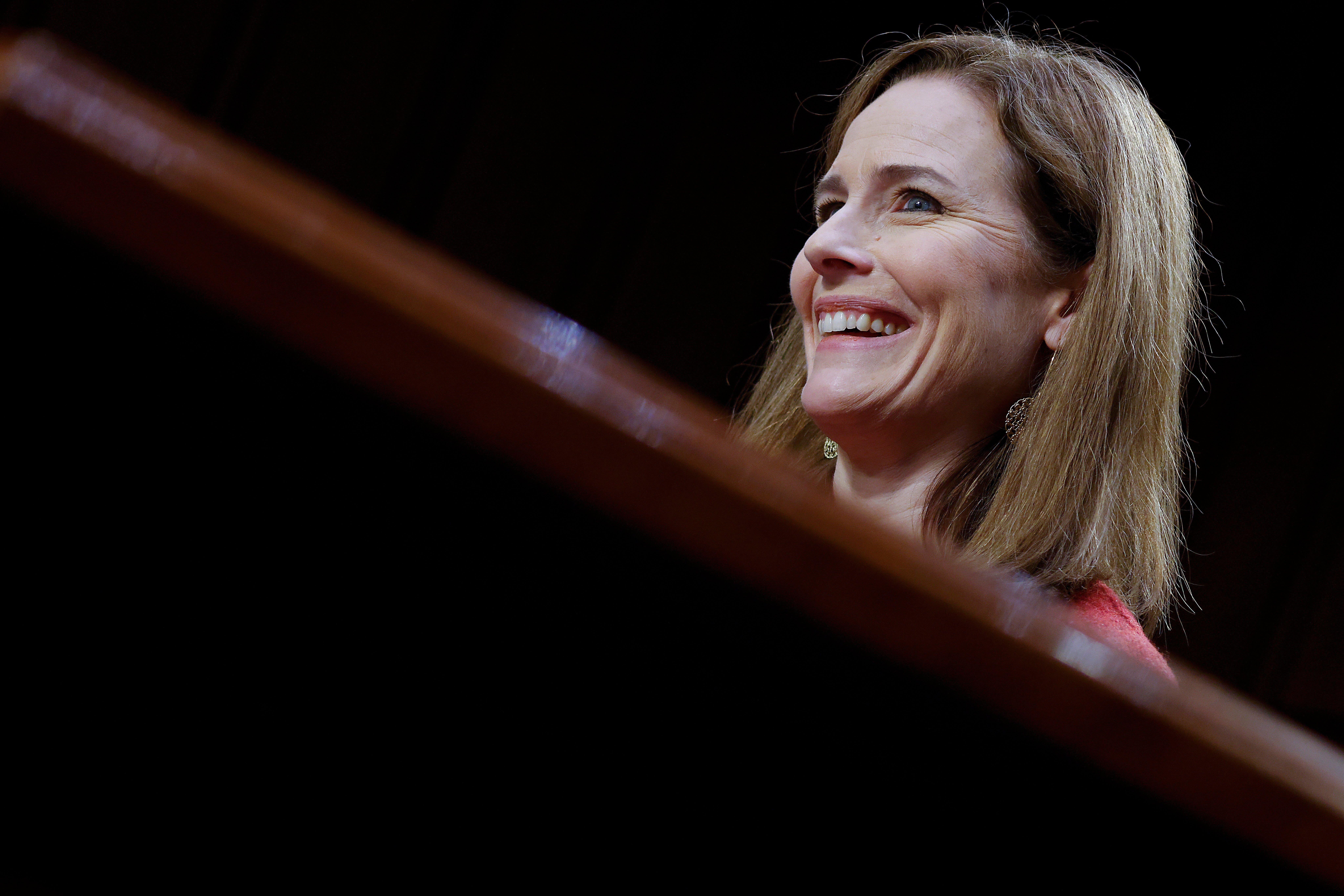AP Explains: Originalism, Barrett's judicial philosophy
President Donald Trump’s Supreme Court nominee, Judge Amy Coney Barrett, describes herself as an originalist in the mold of her mentor, Justice Antonin Scalia

Your support helps us to tell the story
From reproductive rights to climate change to Big Tech, The Independent is on the ground when the story is developing. Whether it's investigating the financials of Elon Musk's pro-Trump PAC or producing our latest documentary, 'The A Word', which shines a light on the American women fighting for reproductive rights, we know how important it is to parse out the facts from the messaging.
At such a critical moment in US history, we need reporters on the ground. Your donation allows us to keep sending journalists to speak to both sides of the story.
The Independent is trusted by Americans across the entire political spectrum. And unlike many other quality news outlets, we choose not to lock Americans out of our reporting and analysis with paywalls. We believe quality journalism should be available to everyone, paid for by those who can afford it.
Your support makes all the difference.President Donald Trump’s Supreme Court nominee, Judge Amy Coney Barrett, has made her judicial philosophy clear through opinions, speeches and other writings. She describes herself as an originalist in the mold of her mentor, Justice Antonin Scalia
Here's a look at the judicial philosophy of originalism, what Barrett says about it and the philosophy's opposite:
___
ORIGINALISM
Originalism is a term coined in the 1980s to describe a judicial philosophy focusing on the text of the Constitution and the Founding Fathers’ intentions in resolving legal disputes. Originalists argue that new legislation rather than new interpretation of the Constitution, is the best way to bring about social change and safeguard minority rights. Originalists say relying on text doesn’t mean they can’t grapple with contemporary phenomena, such as the radio or Internet.
___
BARRETT ON ORIGINALISM
Asked Tuesday to explain originalism in English, rather than legalese, Barrett said the following: “So in English, that means that I interpret the Constitution as a law, that I interpret its text as text and I understand it to have the meaning that it had at the time people ratified it. So that meaning doesn’t change over time. And it’s not up to me to update it or infuse my own policy views into it.”
___
ORIGINALISM'S OPPOSITE
The judicial approach that is originalism's opposite is sometimes referred to as the “living constitution,” “loose constructionism” or “modernism.” This judicial philosophy considers the Constitution to be a living document, able to encompass society’s changing, evolving values. Judges who approach decisions this way are sometimes called “activist judges” by critics.
___
GINSBURG'S PHILOSOPHY
Justice Ruth Bader Ginsburg, whom Barrett would replace, embraced the idea of a more elastic Constitution. While she and Barrett's mentor, Justice Scalia, were friends, their judicial philosophies were opposite.
Speaking to groups, Ginsburg often approvingly cited the lines of an opera written about their friendship which at one point sets out an explanation of their differing philosophies in song. The Scalia character sings a "rage aria" that begins, “The justices are blind, how can they possibly spout this, the Constitution says absolutely nothing about this."
Ginsburg liked to repeat the lines of her response: “Dear Justice Scalia, you are searching for bright-line solutions to problems that don’t have easy answers. But the great thing about our Constitution, is that like our society it can evolve.”